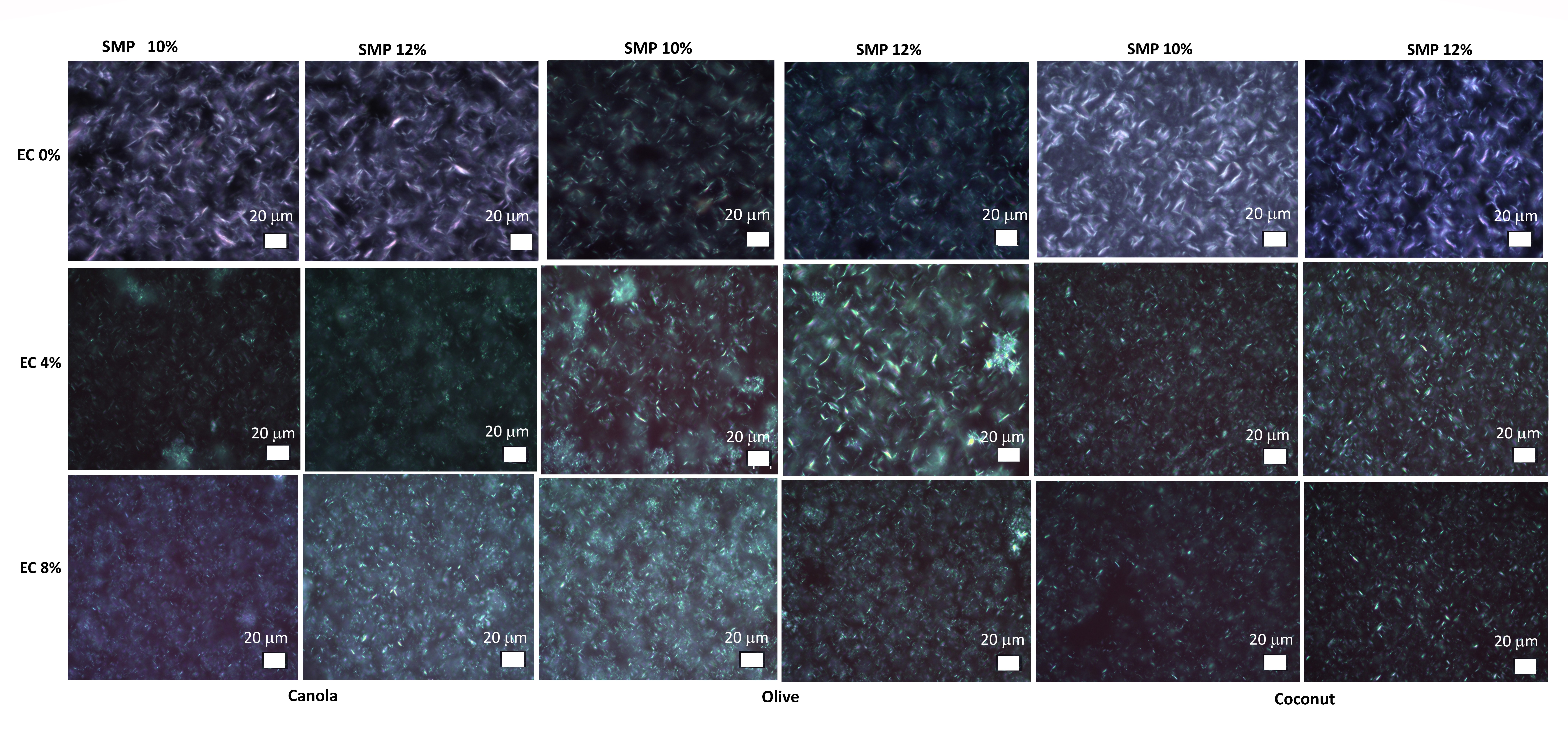 |
|
The modification of vegetable oils from liquid to solid state gel type is achieved by organogelation, the first phenomenon experienced is nucleation that can be spectrophotometrically evaluated and obtain thermodynamic properties. The objective of the work was to evaluate the solid formation from nucleation to macroscopic properties of the mixture: sorbitan monopalmitate and ethyl cellulose in canola, olive and coconut vegetable oils. Nucleation kinetics, solid growth analysis, oscillatory rheology characterization, thermal properties by differential scanning calorimetry and microstructural formation by optical microscopy were evaluated. Non-isothermal nucleation kinetics indicated short induction times for canola and prolonged in coconut, the inclusion of ethyl cellulose involved a more compact solid formation in the systems, without modifying the growth parameters, the coconut organogel was more sensitive to thermal changes. Non-isothermal nucleation kinetics are useful for determining the thermodynamic properties of organogels and the closest to thermodynamic equilibrium, the inclusion of ethyl cellulose being decisive; same that does not influence formation speed and solid growth. The multicomponent gels obtained showed that the structural differences depend on the concentration of the mixture that includes ethyl cellulose, presenting more compact structures and thereby more resistant gels.
Keywords: nucleation, organogelation, ethyl cellulose, vegetable oils.
|
|
 |

